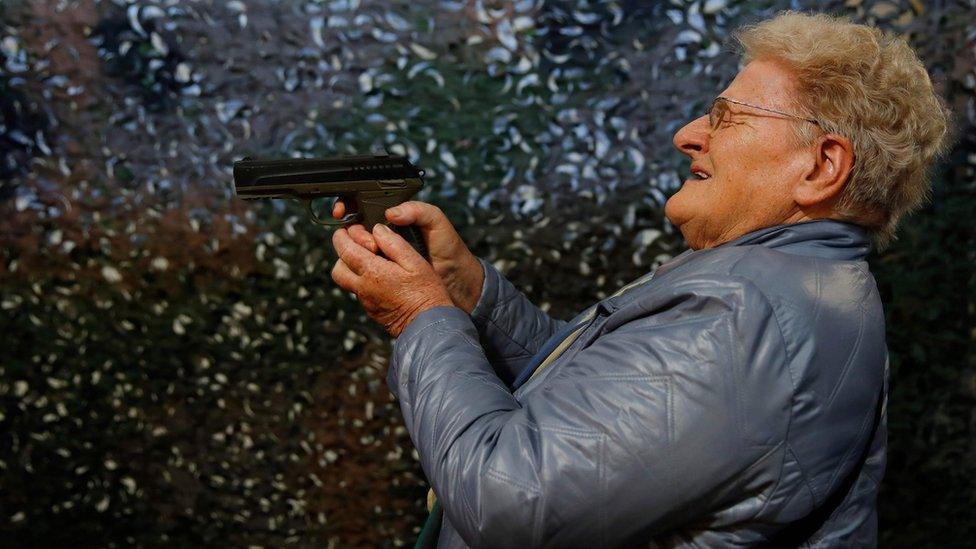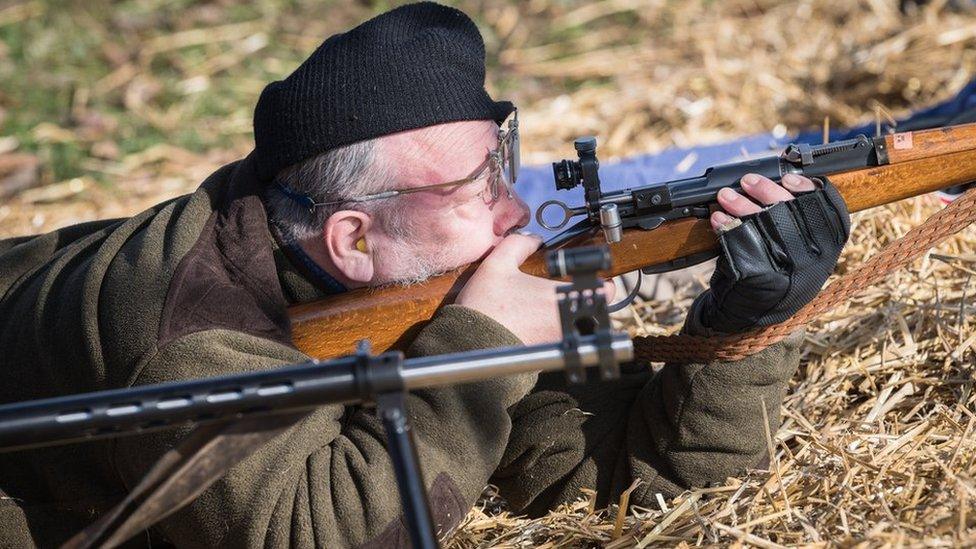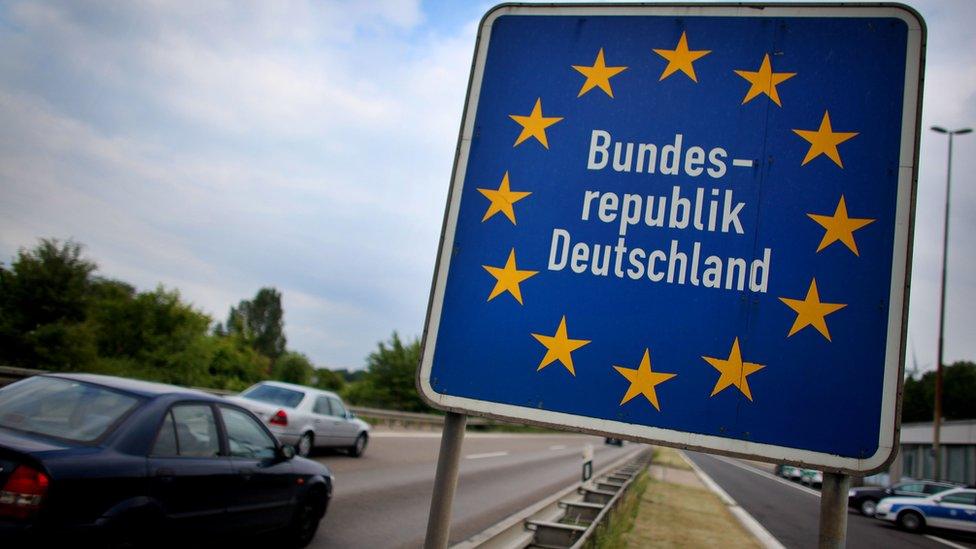Switzerland gun control: Voters back EU regulations
- Published

Nearly 48% of households in Switzerland own a gun
Voters in Switzerland have backed a tightening of gun laws to conform with European Union regulations.
Almost 64% of voters in Sunday's referendum supported tougher restrictions on semi-automatic and automatic weapons, final results show.
Switzerland is not an EU member, but risked removal from the open-border Schengen Area if it had voted "no".
Nearly 48% of Swiss households own a gun - among the highest rates of private ownership in Europe.
The EU had urged the country to tighten its laws in line with rules adopted by the bloc following the 2015 Paris terror attacks.
The rules restrict semi-automatic and automatic rifles and make it easier to track weapons in national databases.
The EU's initial proposal sparked criticism in Switzerland, because it meant a ban on the tradition of ex-soldiers keeping their assault rifles.
Swiss officials negotiated concessions, but some gun activists argued that the rules still encroached on citizens' rights.

What does the result tell us?
Analysis by Imogen Foulkes, BBC News, Geneva
Opponents of the new gun laws described them as a diktat from Brussels, being forced on non-EU member Switzerland against its will. The Swiss national identity, with its long tradition of gun ownership, was, they argued, being undermined.
But Sunday's nationwide referendum shows voters think differently: they have overwhelmingly backed the new gun laws, following their government's advice.
The Swiss seem keen to co-operate in the EU's attempts to prevent terror attacks, and to keep their often tricky relations with Brussels as smooth as possible.

Why is the EU concerned about Swiss gun laws?
After the 2015 Paris attacks, the EU issued Schengen members with new restrictions on automatic and semi-automatic weapons.
The rules called for:
A ban on weapons capable of rapidly firing multiple rounds
Automatic and semi-automatic weapons to either be banned or heavily restricted
Each owner of such a weapon, and the weapon itself, to be known to police across Europe
All essential weapon components to be clearly labelled and registered electronically
The EU hoped the rules would help to protect people across Europe, and prevent a repeat of the 2015 attacks.
Failure to adopt the changes could have forced Switzerland to leave the Schengen zone and the Dublin joint system for handling asylum requests.
What did Swiss officials say?
The Swiss government urged voters to back the changes.
It said gun enthusiasts would not notice the new rules, while adopting them would allow Switzerland to retain its Schengen membership.
Officials said membership of the zone had been beneficial to the economy and to fighting crime.
- Published18 May 2019

- Published29 April 2019

- Published24 April 2016
